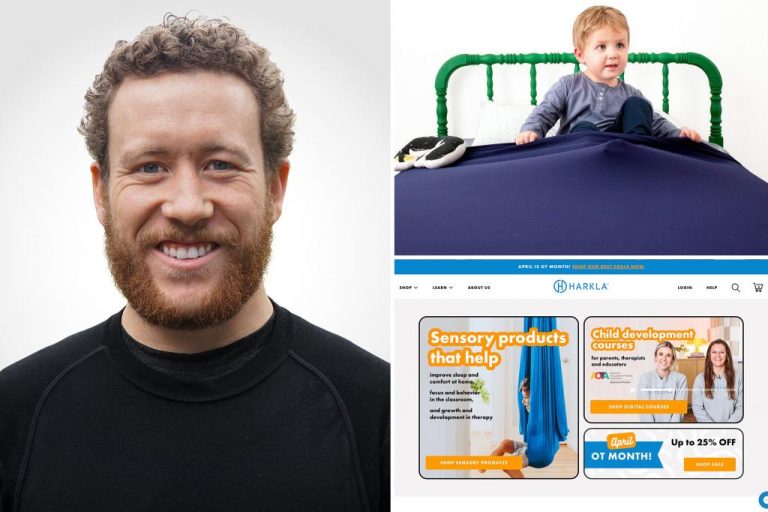A small business owner in Boise, Idaho, got the shock of his life when he realized President Trump’s tough trade measures meant tariffs on stock he’d ordered jumped from $26,000 to $346,000 overnight.
Casey Ames imports developmental and sensory toys for children with special needs from China and says Trump’s full 104% tariffs, which go into effect today, mean he may have to shut down half of his 10-employee company, Harkla.
“I may sound calm on the phone but I’m really not,” Ames told The Post. “I’m afraid my employees won’t make it through, real jobs are on the line and at risk.”
The 34-year-old married father of a toddler and a newborn said he didn’t vote for Trump but had been “cautiously optimistic” when he won the election, hoping “we’d be in for a business-friendly environment.”
Instead Ames claims he is facing major issues.
“Can’t pivot that quickly,” he wrote on X. “We’ve explored domestic [production] in the past, and are again right now, and every time it’s not feasible. The unit prices have been higher than retail.”
Ames told The Post he paid $26,000 in tariffs last year on the products he imports from China. With Trump’s current tariffs, he calculated he would have to pony up at least $346,000 in tariffs for the same amount of orders this year.
“People in the US don’t understand the tariff situation,” Ames said. “They think that just foreign countries are paying the tariffs. That’s not true. Half of the tariffs are being paid for by US-based companies.”
Ames says one of his best-selling products has gone from a $0 tariff to $16.67 per item.
Harkla’s developmental and sensory toys include its top-selling product, the Sensory Swing, alongside items like weighted blankets and weighted stuffed animals.
They design the products in Boise but they are manufactured in factories in three Chinese cities.
However, as a result of the increased tariffs, Ames doesn’t see a way out. He says he is facing winding down the product part of his company and may only be able to keep the digital part of his business alive.
Harkla’s digital offerings include educational video programs and courses like “Sensory and Developmental Milestones for Infants and Toddlers” and he has an active YouTube account and social media accounts.
Ames also said while he’d like for his products to be manufactured in the US, the prices he’d have to charge the consumer would make them unviable — and he’s not alone.
“We’ll see people walking away from their businesses,” Ames said. “I have a friend with a board game company. He already knows his tariff bill will be too high so he’s already talking to bankruptcy lawyers.”
A number of small business owners tweeted back in sympathy at Ames’ series of posts about his situation.
“Trump’s tariffs will decimate small toy/game businesses,” toymaker Hasan Hasmani wrote. “We’re being forced to front $400K in tariffs—before we can even sell during the holidays. We fund new products [and] marketing in the first 9 months. The holidays are our payoff. Most won’t survive the year.”
Ames said his only hope is if the Trump administration makes an exception for small businesses or allows them to defer payment to see how the trade war shakes out.
“But I’m no longer too optimistic about that either,” he said. “The one silver lining is that I always thought if my business failed, it would be my fault. If we fail now, it certainly won’t be my fault.”




